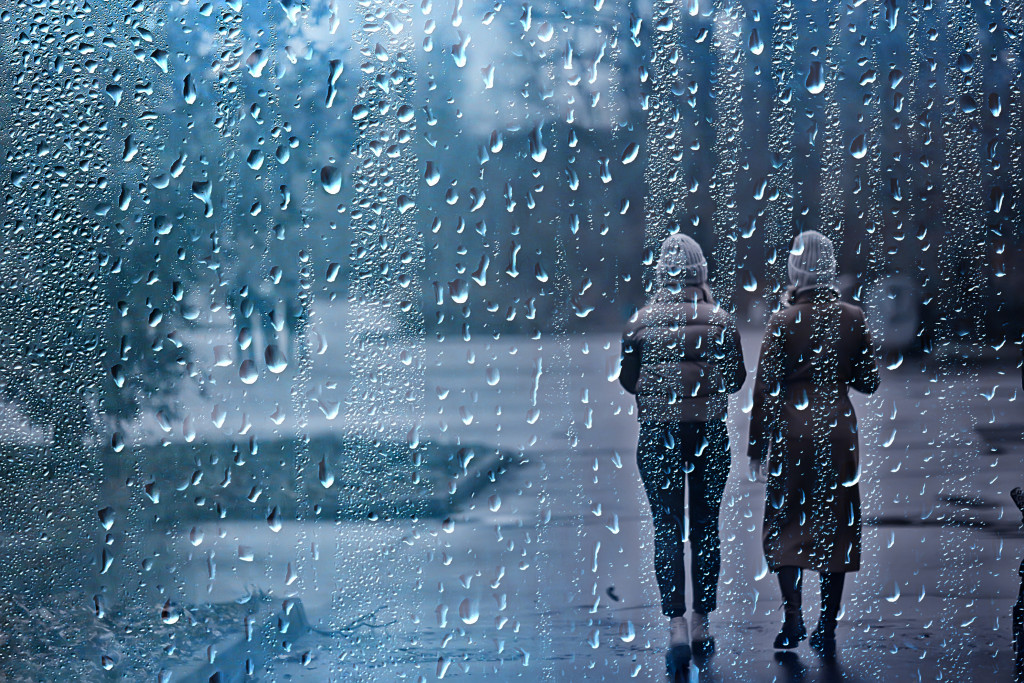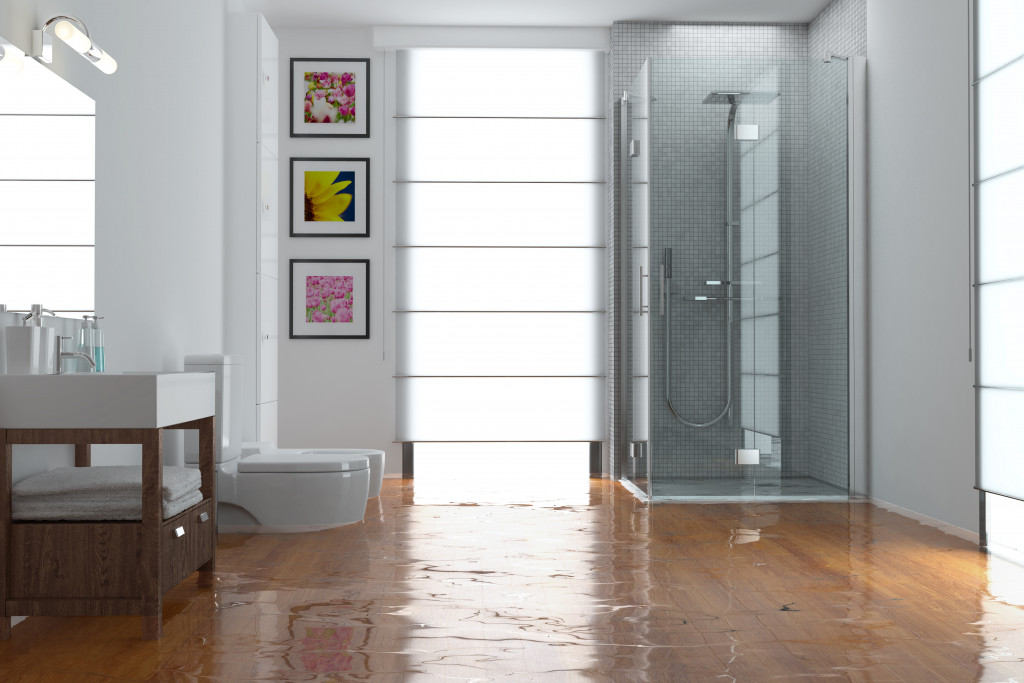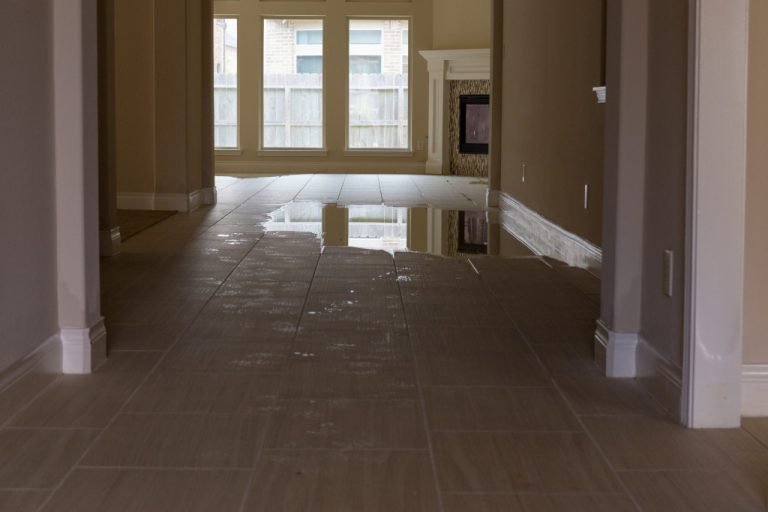- Check your roof regularly and make sure it is adequately ventilated.
- Clear gutters and downspouts of any debris or buildup regularly.
- Inspect windows and doors for flaws in weatherstripping or caulking.
- Install flood sensors in basements, crawl spaces, and other exposed home areas.
- Hire a professional who deals with water damage for assessment and repair.
Water damage can be one of the most devastating consequences of a storm. In addition to the cost of repairs, water intrusion can quickly lead to mold and mildew growth, leading to potentially serious health hazards for you and your family. Fortunately, there are several things you can do to protect your home from water damage after a storm. With these five tips, you’ll be able to minimize the impact of water damage on your home and protect it from further harm.
1. Check Your Roof Regularly
Your roof is one of the first places where water will enter in the case of a severe storm or hurricane. Have your roof inspected yearly to avoid leaks and other structural issues that could add up to costly repairs down the road. This will allow you to identify potential problems before they become more expensive. It is also important to ensure that your roof is adequately ventilated, as this will help keep moisture out of the attic and other home areas where water can collect.
2. Clear Gutters and Downspouts Regularly
Gutters are designed to carry water away from your house to avoid flooding or pooling near the foundation walls. However, if gutters get clogged with debris or leaves, they can fill up quickly during a storm, causing overflowing that could contribute to water damage in other home areas. To protect against this, regularly inspect and clear your gutters of any buildup, and consider adding a gutter guard to keep out larger debris.
3. Inspect Windows and Doors for Flaws

Windows and doors that lack proper sealing can be an entry point for water during a storm. To prevent this, inspect the seals around all windows and doors regularly. Look for gaps or cracks in the weatherstripping or caulking, as these can lead to water gain during heavy rain events. If you find any issues with your windows or doors, it is important to fix them as soon as possible – even small holes can allow enough water to cause damage over time.
4. Install Flood Sensors in Basements and Crawl Spaces
Basements and crawl spaces are particularly vulnerable to water damage during a storm, as they can quickly become flooded if water enters through the walls or foundation. To protect these areas of your home, consider installing flood sensors in any exposed areas. This will help you detect potential issues before they become more serious, allowing you to avoid costly repairs.
5. Hire a Professional Who Deals With Water Damage
Suppose you find yourself in the unfortunate position of dealing with water damage in your home. In that case, it is essential to hire a water restoration company. Not only will they be able to assess the extent of the damage and provide advice on any necessary repairs, but they can also help with the removal of moisture and mold remediation if needed. Having an expert on your side can make all the difference in getting your home back into shape after a storm.
Commonly Asked Questions
What are some steps I can take to prevent future water damage?

A few ways you can help keep your home safe from potential water damage include clearing any debris near gutters regularly, inspecting your roof at least twice a year, and making sure downspouts are directed away from your home’s foundation. Additionally, investing in waterproofing products such as sealants, spray-on membranes, and sump pumps may be beneficial.
How can I reduce the probability of water entering my home during a storm?
You can take proactive steps to help minimize the risk of water entering your home during a storm. Ensure all windows, doors, roof vents, and other openings are properly sealed with caulk or weatherstripping. Consider installing backflow valves, storm shutters, and sump pumps to protect your home from further water damage.
Is there anything I can do while the storm is occurring?
During a storm, keep an eye on potential flooding areas outside your home and do what you can to divert water away if necessary. Additionally, move furniture, electronics, and other valuables away from walls and windows to help mitigate the damage if flooding does occur.
Will insurance cover water damage caused by a storm?
It depends on the type of insurance policy you have in place and the circumstances surrounding the incident. Generally speaking, standard homeowner’s insurance policies will cover water damage due to storms. However, certain exclusions or limitations may apply, so it’s best to speak with your insurance provider for more details.
In Closing
By following these tips, you’ll be better prepared to protect your home from water damage after a storm. Remember that prevention is always key – regular maintenance and inspections can go a long way toward protecting against costly repairs down the road. If you find yourself dealing with water damage, however, it is important to seek help from a professional who can provide the best solutions for your needs. These steps will ensure that your home remains safe and sound after the storm.
